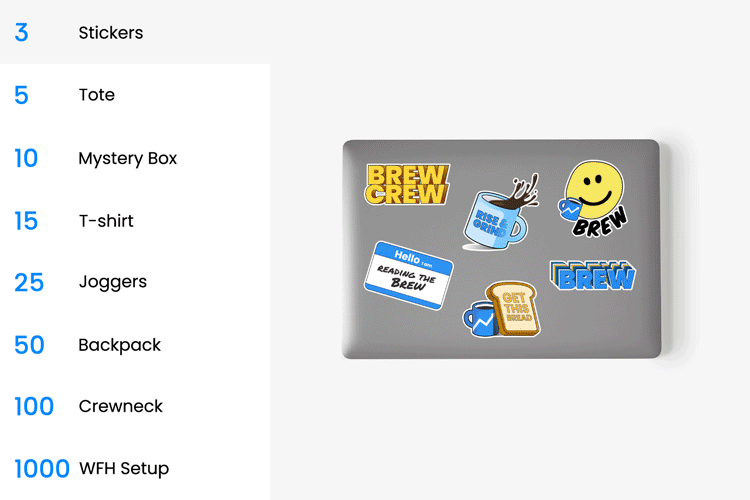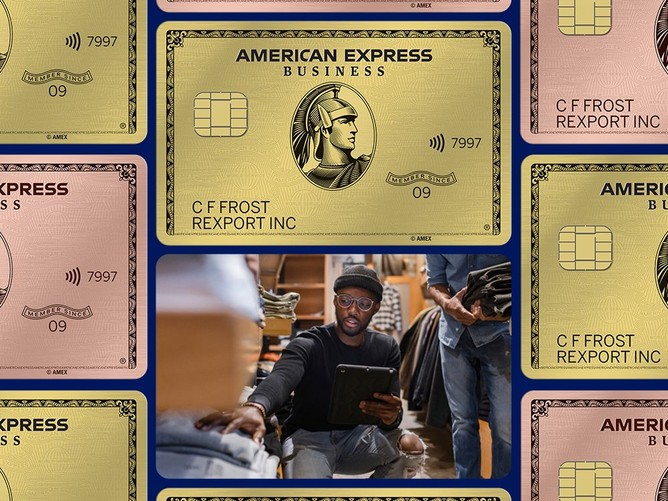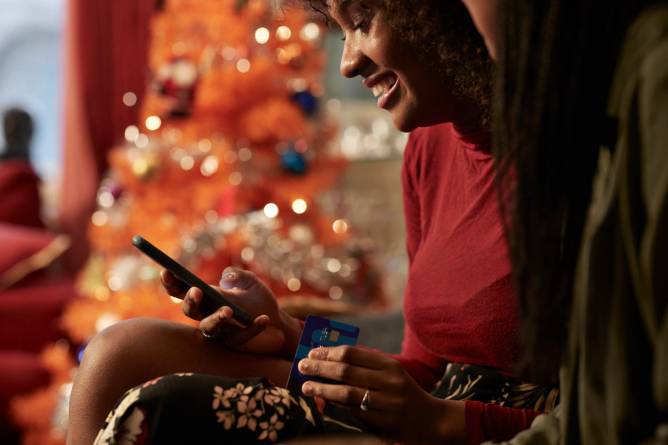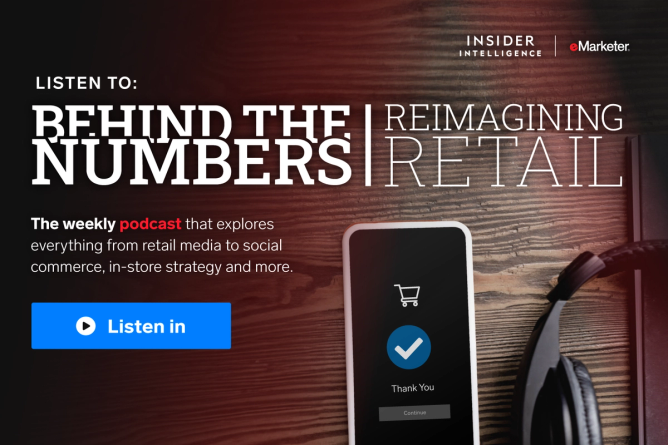It’s Monday, the start of Thanksgiving week and the holiday season, and while there will be plenty of excellent bottles of small-batch this and cask-aged that under trees, surely none will be as impressive as the bottle of Macallan scotch whisky that sold at Sotheby’s in London recently.
It fetched $2.7 million, a record for a bottle of wine or spirits, but since it was purchased from an auction house rather than a liquor store did not, sadly, earn the purchaser 2,700,000 points on the loyalty card.
In today’s edition:
—Alex Vuocolo, Katishi Maake
|
|
Solo Brands
A concerted push into wholesale is paying dividends for Solo Brands, even as it takes a chunk out of its direct-to-consumer business. The maker of the Solo Stove and Oru Kayak increased its wholesale business 114.3% in Q3, while its DTC sales declined 11.5% over the same period.
These numbers seem to indicate that there’s a trade-off between wholesale and DTC sales, but Solo Brands CEO John Merris told Retail Brew that this kind of “near-term cannibalization” was anticipated and could even create tailwinds for the direct business in the long term.
“We definitely do not believe that this is a zero-sum game between the two channels,” he said. “We actually think that there’s a lot more synergy.”
Getting serious about wholesale
Merris said the wholesale growth is due to Solo Brands’s changing relationship with retail partners. He explained that the company decided in late 2022 to embrace a more omnichannel business model and started reaching out to top retail partners to let them know that they were serious about developing their relationship, despite its reputation as a digital-first company.
The overtures were well-received, according to Merris, and Solo Brands started working more closely with partners to improve shelf real estate and enhance its product displays. The process also revealed that retailers were interested in getting more visibility around Solo Brands’s promotional calendar, so they could help drive customer engagement.
This demand has helped Solo Brands ease up on discounts at a time when many retailers were laying them on thick to help clear out excess inventory.
“We had retail partners saying, ‘Hey, we don’t think that you guys need to be as promotional as you’ve been, especially as you lean into this. Let’s be more disciplined,’” Merris said. “We’ve seen that this year we’ve been less promotional on a year over year basis, even in this tough environment.”
‘Free’ advertising: Merris said wholesale is also organically raising brand awareness. He noted that there’s been a 23% jump in first-time customers shopping online for fire pit accessories, which implies they were either gifted a fire pit or purchased one through a wholesaler.
- The dynamic is allowing the company to lower its digital advertising costs while still driving customers to its website, according to Merris.
“We have spent 26% less on digital marketing than we did last year for the same period through Q3,” he said. “So the traffic that the wholesalers are bringing us is cheaper if you think about it in terms of traffic, because we have grown 8% overall as a business.”
Keep reading here.—AV
|
|
PRESENTED BY AMERICAN EXPRESS BUSINESS
|
The enhanced American Express® Business Gold Card is designed to take your business further.
It’s packed with benefits, like 4X Membership Rewards® points that automatically adapt to your top 2 eligible spending categories every month, on up to $150k in purchases per year.
You can also earn up to $395 in annual statement credits on eligible business purchases at select shipping, food delivery, and retail subscription merchants.
And with flexible spending capacity that adapts to your business and access to 24/7 support from a business Card specialist, you can continue to run your business with confidence.
The Amex® Business Gold Card, now smarter and more flexible. That’s the powerful backing of American Express.
Enrollment required. Terms apply. Learn more.
|
|
Elena Noviello/Getty Images
The global supply chain crisis that started in 2020 and bled into this year has largely resolved, but the holiday shopping season is when those improvements are really put to the test.
Although many retailers have bumped up their holiday shopping sales well ahead of Black Friday, roughly 40% of all holiday retail dollars will be spent in the next five weeks. Black Friday (November 24), Super Saturday (December 23), and December 16 will be the busiest days of the holiday shopping season, according to Sensormatic Solutions.
-
Retailers are finally rebounding from the inventory backlogs that led to many sales earlier in the year, but for the holidays, they’ll need to shore up their channels to make the most of what will be their busiest time of the year.
“Most retailers have, in my opinion, generally found a reasonable state of total level of inventory in their supply chain and in their stores—some better than others, certainly,” Andrew Billings, VP and supply chain lead at North Highland, told Retail Brew. “It is now about the allocation of that inventory across channels, and the ability to truly have an omni-inventory capability where I can move inventory fairly seamlessly, quickly, and at low cost between channels.”
Cross it up: Billings said supply chain leaders should focus on three areas this holiday season.
- Cross-channel flexibility: being able to share products across channels to prevent inventory instability
- Cross-channel fulfillment agility: using ship-from-store tools to optimize service and cost impacts
- Economic environment awareness: Operating costs should be closely monitored to create opportunities for higher margins.
“You’re going to see, this holiday season, a lot of those networks being tested because of the need to dynamically move inventory across channels, across regions,” he said. “And so those investments that have been made over the last decade to really integrate the supply chains across channels are going to show up in inventory availability in stores and online for some of the largest retailers.”
Keep reading here.—KM
|
|
Klaus Vedfelt/Getty Images
According to a new Harris Poll, 81% of Gen Z and millennial shoppers say they’re ready to splurge this holiday season, despite 62% saying they’re not financially prepared.
This wouldn’t be the first time the two demographic groups shelled out for the holidays despite a lack of funds. The poll found that 44% previously went into debt to pay for gifts, and 63% said they tend to be impulsive when holiday shopping.
- They also aren’t skimping on themselves. Around two-thirds said they see the holidays as an excuse to indulge on personal and luxury items, and 46% said they “would rather spend more money on myself than spend it on others during the holiday season.”
“This data underscores Gen Z and millennials’ robust eagerness to spend liberally for personal enjoyment this holiday season,” Libby Rodney, chief strategy officer and futurist at The Harris Poll, told Retail Brew in an email.
She added that recent economic and public health crises have led younger consumers to adopt “a blend of self-preservation” and “financial adaptability;” they’re “abandoning their budgetary constraints to escape into the holiday spirit.”
Deal hunters: Still, this doesn’t mean they’ll pay any price. Three-quarters said they rely on discount events such as Black Friday, Cyber Monday, and Prime Day for shopping.
- Half of the millennial and Gen Z respondents said Amazon was their main holiday shopping destination, while 36% preferred “in person at the mall.” (Interestingly, just 28% of Gen X and boomers said they preferred shopping in person at the mall, with 56% identifying Amazon as their main shopping destination.)
Keep reading here.—AV
|
|
TOGETHER WITH AMAZON WEB SERVICES
|
|
No more tech fog. Just hearing the word “cloud” is enough to send shivers up retailers’ spines. Tech like that doesn’t come easy—until now. AWS Cloud Institute can help you become a developer in the AWS Cloud in as little as one year, no technical expertise needed. Start seeing the cloud clearly.
|
|
Reimagining Retail Podcast
|
Behind the Numbers: Reimagining Retail is the go-to podcast for retail insights, covering everything from media and social commerce to digital and physical shopping. Tune in every Wednesday for deep dives into the latest trends and how they’re shaping the retail industry. Listen in.
|
|
Today’s top retail reads.
Musk have got lost: Apple is among the advertisers to suspend advertising on X after Elon Musk lauded an antisemitic conspiracy theory on the social media platform. (the New York Times)
The wrath of grapes: Extreme weather and declining demand are both factors in why global wine production is expected to be at its lowest level since 1961. (CNN)
Udder confusion: Why oat milk costs so much more than dairy milk. (Marketplace)
|
|
|
Share Retail Brew with your coworkers, acquire free Brew swag, and then make new friends as a result of your fresh Brew swag.
We’re saying we’ll give you free stuff and more friends if you share a link. One link.

Your referral count: 2
Click to ShareOr copy & paste your referral link to others:
retailbrew.com/r/?kid=303a04a9
|
|
ADVERTISE
//
CAREERS
//
SHOP
//
FAQ
Update your email preferences or unsubscribe
here.
View our privacy policy
here.
Copyright ©
2023
Morning Brew. All rights reserved.
22 W 19th St, 4th Floor, New York, NY 10011
|
|









